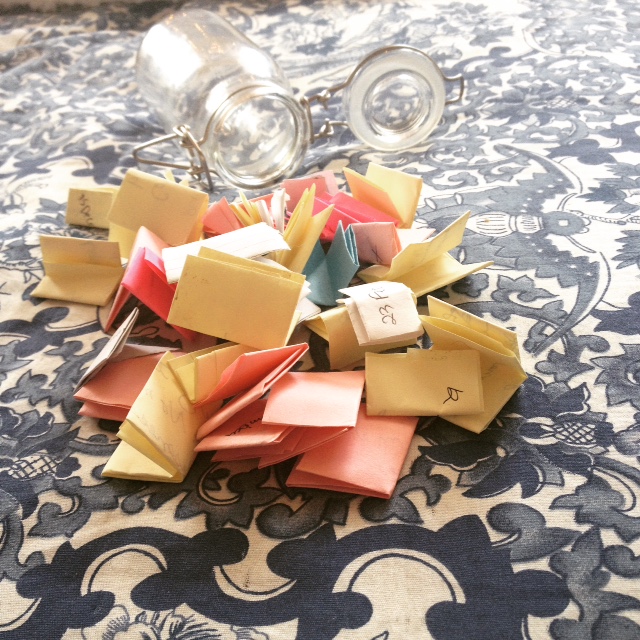
Annunciation, by James Tissot. I love it when the angels are weird.
I’m a fairly patient person; waiting isn’t painful to me as long as I know what it is I’m waiting for. When I don’t know what’s coming—when all I know is that it’s something big, something with the potential to shake up my life, something that might go easier if I were able to prepare for it but I can’t prepare for it because I don’t know what it is—that’s when I get anxious.
Most of the time, Advent is, to me, precisely what it’s “supposed” to be—a season of joyful anticipation. This year is a little different. I don’t know where I’m going to be living come Christmas. I don’t know what kind of world I’m going to be living in come January. There are no Christmas decorations up in my house this year. I spent the entire month of November in another state, and I feel like I abruptly skipped from All Hallow’s to Advent without any breathing space between. I usually think of “waiting” as something you want to be over as soon as possible. But the dread you experience when something is barreling down the pipeline towards you at far too fast a clip, that’s part of waiting too.
This year, for a number of reasons, the waiting of Advent is, to me, the kind of waiting that doesn’t last long enough. Like, if Christmas could get here in two months instead of three weeks, that would suit me just fine. If time in general could slow and stretch, I would be into that. I always feel like things are happening a little too fast. I react to all change like it’s a change for the worse. A daily dose of dread is a normal part of my life.
The way practically everyone tells the annunciation story, Mary’s complete submission to “God’s will” gets emphasized over everything else. But even if humble obedience really was her chief reaction to being told by an angel that a divine fetus was about to be magically implanted in her body, I’m sure that wasn’t the whole of it. I know that if I were in Mary’s shoes, I would definitely be wondering about the nature of the holy infant I was carrying. Like, how does “divinity” express itself in a baby? Is this kid going to be speaking in complete sentences with the authority of God the Father straight out of the birth canal? Is he gonna have wings? You’d have to pause, considering the possibilities.
I don’t think the Bible indicates whether Mary’s pregnancy lasted the full term of a normal human pregnancy, but let’s assume it did. For eight months, Mary could treat all those questions as theoretical, but around the beginning of month nine, I bet she felt the glare of metaphorical approaching headlights. No doubt she was full of tender maternal joy, just like all the stories say, but if there wasn’t a little dread mixed in there too, I would be very surprised.
I find all of that sort of comforting. When December 1st rolled around last week and I didn’t feel like dragging out my mini-tree, I felt like I was ruining the holiday season. But I feel less that way now. The darkness that wraps around the northern hemisphere in December makes dread practically a biological imperative. I’ve come to the conclusion that it’s fine that I sometimes look at the birth of Christ and see an event rivaling the Second Coming in its fear and uncertainty. The word has turned upside down many, many times. The here-and-now has always been someone’s apocalypse. Advent is the prelude, not just to the miracle of the incarnation, but to the ministry of the man who gave us fair warning that he came to bring not peace but a sword. The dread is probably a gift of some kind. I just have to figure out what to do with it.

Annunciation, by Rose M Barron. I love everything about this, but especially the skeptical look on Mary’s face.











